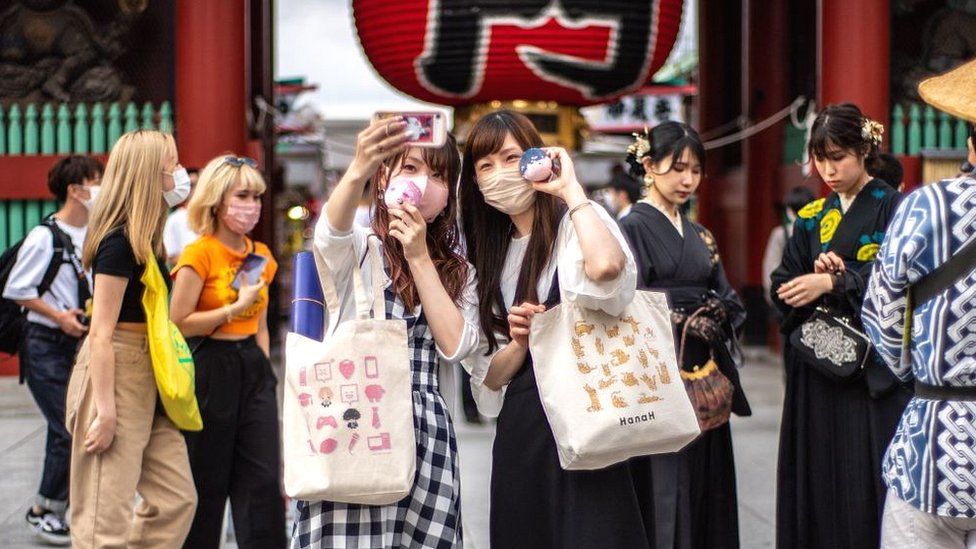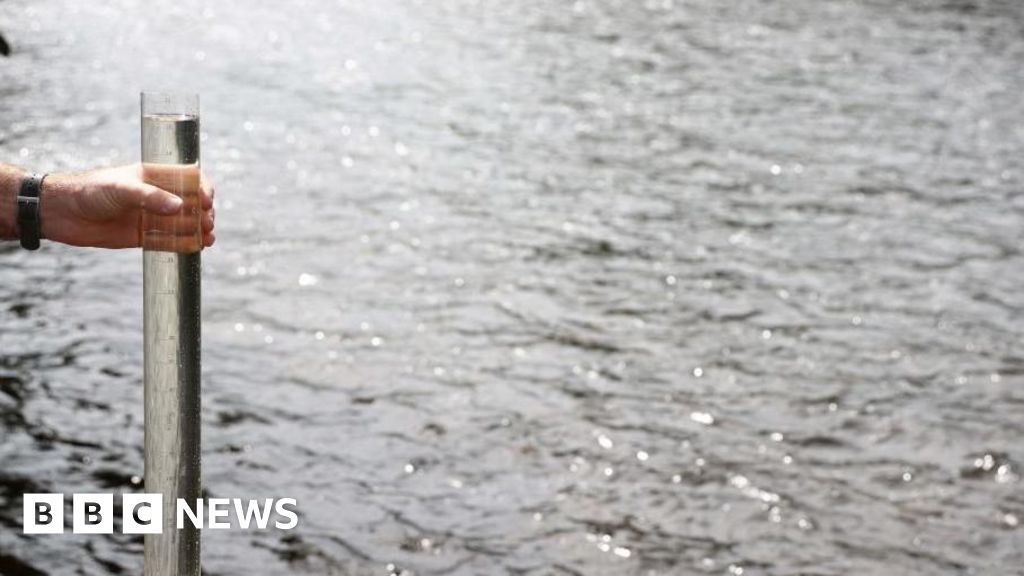ARTICLE AD BOX
By Annabelle Liang
Business reporter
 Image source, Getty Images
Image source, Getty Images
Neasa Ronayne plans to visit Japan for the first time this year.
She has paid more than £3,500 ($4,390) for a 16-day tour, as under the country's Covid-19 restrictions she is not allowed to roam around on her own.
But Ms Ronayne, who lives in the UK, is still keen to make the trip.
"This will be my first time in Japan and also my first time in Asia. I am looking forward to it. I have been watching [Japanese reality TV show] Terrace House to learn some phrases," she said.
She is not alone. Several travel agencies have told the BBC they were seeing a jump in inquiries about holidays to Japan - although the country's strict regulations are still keeping some visitors away.
Japan has been largely closed to foreign visitors since 2020, as it implemented some of the world's toughest Covid-19 restrictions. And even now, as it opens its borders to tourists from nearly 100 countries and regions on Friday, it is putting new restrictions in place.
This includes the requirement for travellers to be part of a package tour. They must also buy medical insurance and wear masks in all public places, including outside.
Under the rules, tourists will also have to avoid the so-called "three Cs": closed spaces, crowded places and close contact settings.
Earlier this week, the Japan Tourism Agency said tour leaders needed to accompany visitors "from entry to departure", while reminding them of Covid requirements like mask wearing.
"Tour guides should frequently remind tour participants of necessary infection prevention measures, including wearing and removing masks, at each stage of the tour," the agency said in 16 pages of guidelines issued on Tuesday.
"Even outdoors, the wearing of masks should continue in situations where people are conversing in close proximity," it added.
Still, travel agencies say they have seen a surge in interest in visiting the country.
Singapore's Chan Brothers Travel said it had received bookings for 50 tour groups to Japan, with each including as many as 30 people.
Its spokesperson, Jeremiah Wong, told the BBC that inquiries have been "streaming in exponentially" since Japan's reopening was announced.
"To make up for the time lost in the past two years or more, travellers have no qualms going on their long-awaited holidays," Mr Wong said.
But he is unsure when the company's first post-pandemic tour to Japan will be able to go ahead: "The potentially earliest departure will be after mid-July due to the requirement for tourist visa application... for all travellers."
Zara Bencheikh, the managing director of Intrepid Travel, said there was a "huge pent up demand to visit Japan".
Her firm hopes to restart its tours - which cover popular destinations like Mount Fuji - from August. But Ms Bencheikh said it was still in the process of getting approval from the Japanese authorities.
Image source, Getty Images
Image caption,Mount Fuji is one of Japan's most iconic tourist destinations
Japan has barred most foreign visitors for the last two years as it imposed measures to slow the spread of Covid-19. Last year, overseas visitors were even banned from the delayed 2020 Tokyo Olympic Games.
The country only relaxed travel restrictions for foreign residents and business travellers earlier this year.
Last month, Japan said it would double the daily limit for foreign arrivals to 20,000.
This "modest reopening strategy" will not bring much benefit to the Japanese economy - which is the world's third largest, said Kentaro Koyama, chief economist at Deutsche Bank Japan.
"The government's response has been rather delayed. The aging Japanese population is more fearful of infection than other countries," Mr Koyama said.
Before the pandemic tourism was big business in Japan with a record 31.9m foreign visitors to the country in 2019. Last year, there were fewer than 250,000.
But the tourism industry of this once-popular Asian destination still has some way to go on the road to recovery.
Rad Sappany told the BBC that said she has dropped her plans to visit Japan next month from Australia because of the restrictions.
"We are not interested in a package tour - it's not the way we like to travel," she said.
Wanping Aw, who runs Japan-focussed boutique travel agency TokudAw, said her company has not secured any bookings, despite getting two to three enquires every day.
"We do not have any finalised bookings yet as no one is willing to make a commitment," she said.
Ms Aw added: "'We do not want to be guinea pigs' is a phrase I often hear."
You may also be interested in:
Watch: Cheers and beers as Shanghai eases lockdown

 2 years ago
46
2 years ago
46








 English (US) ·
English (US) ·